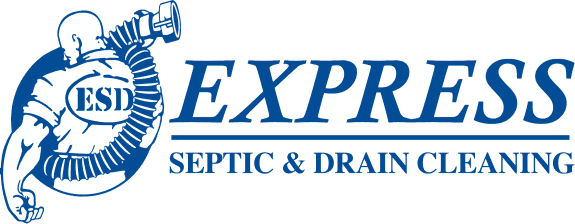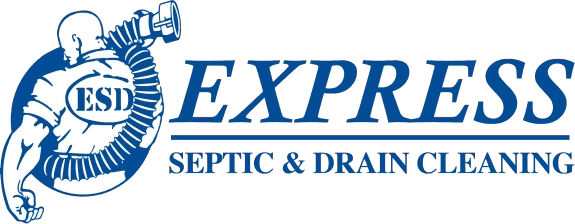Septic tanks are a great waste removal option for buildings that aren’t connected to a local sewage system. With proper care, a septic system can last anywhere from 20 to 40 years. Still, there will eventually come a time when the system starts to fail and will need to be replaced. When a septic system fails, it can cause sewage to leak out and pollute the surrounding soil and groundwater. It may also lead to water damage inside your home as a result of a sewage backup. Luckily, there will usually be at least some fairly obvious signs that indicate your system has failed. With this in mind, let’s look at the most common signs of septic system failure and what causes them.
1. Sewage Backing Up Into the Building
Wastewater or sewage backing up inside your sinks, drains or toilets is a clear sign that there is some issue preventing the waste from flowing into the septic tank. The problem could be caused by a clog or blockage in the sewer line leading from the building to the tank. This issue is usually fairly easy for a plumber to fix by running a pipe snake down the line to clear the blockage.
Backups can also occur if either the inlet baffle coming into the septic tank or the effluent outlet valve leading to the leach field is clogged. This is typically a simple fix as there should be a cleanout cover at both the inlet and the outlet. After removing the cover, shine a flashlight inside to see if the pipe is clogged. If so, you may be able to use a long metal rod to clear the clog.
Septic systems can also back up if the tank becomes too full, and this can be resolved by having the tank pumped. Septic tanks are filled with bacteria that break down solid waste into a sludge that settles on the bottom of the tank. If the tank isn’t pumped regularly or the bacteria have been killed off due to putting chemicals into the system, it can quickly fill up and leave no more room for additional waste. When this happens, it can start to back up every time you put even a small volume of water or waste into the system. The easiest way to avoid this problem is to make sure you have your tank pumped every three to five years and avoid putting bleach or any other chemicals into the septic system.
Septic backups can also occur if the leach field isn’t working properly. If the soil around the leach field is too compacted or waterlogged, it can prevent the wastewater from flowing out into the leach field and cause it to start backing up. This is why you should never drive or park on the leach field or allow any water from your landscaping or downspouts to drain into the field. You should also never build anything on top of the leach field or let livestock walk on the field as this will also compact the soil.
The leach field can also become clogged if you put too much solid waste into the system. This is why you should never put anything but toilet paper and human waste into the system.
2. Lush Vegetation Around Your Tank or Leach Field
Having bright green grass or other lush vegetation growing on or around the leach field is another obvious sign of a major problem. Sewage contains many nutrients that allow plants to thrive. If wastewater is leaking out of the leach field, it will essentially act as fertilizer and cause the vegetation to become more lush and green. If you have grass planted over the field, you will usually quickly notice that it is much greener than the rest of your lawn. If this happens, it is a sign that the leach field is no longer working properly due to compacted or waterlogged soil or because the drain pipes and clogged or broken. When this happens, the only real option is to have the leach field replaced.
3. Slow Drains
If your sinks, showers, or toilets are draining slowly, this can also indicate that the septic system is full or the sewer line is clogged. If only one drain is slow, this means you’re only dealing with a clog in that drain or pipe. However, if all of the drains in the building are slow, this is a sign that you’re dealing with a larger issue. If you do notice your drains are slow, you should have your system inspected immediately. This is because slow drains are usually just a precursor to a sewage backup.
4. Sewage Odors Inside the Building or Near the Leach Field
Your septic system is fully contained, which means it shouldn’t ever smell as long as everything is working properly. If you smell sewage anywhere outside near the septic tank or leach field, this indicates that either the tank is leaking or the leach field isn’t draining properly.
The sewage smell could also be a sign that the sewer line is damaged and leaking. This most commonly occurs as a result of driving over the line or due to tree roots growing into the pipe.
Sewage smells coming from your drains or plumbing fixtures are also never good. If you smell sewage inside your home, it usually means the tank is full or the system isn’t draining properly for some reason.
5. Standing Water Around the Leach Field
If there is standing water around the leach field or the ground is unusually damp, it’s another sure sign that the leach field isn’t functioning. This issue can sometimes happen after heavy rains as the ground can become too waterlogged for the leach field to work. However, if the problem doesn’t go away within a few days after the rest of the ground has dried out, you will need to have your leach field checked out.
6. Gurgling Noises Coming From Your Pipes
Your pipes may also make gurgling noises after you flush the toilet or use the sink when your septic isn’t draining properly. This issue often occurs alongside slow drains and just before the system starts to back up.
7. Contaminated Well Water
If your building is connected to a water well, you should also monitor the water quality to make sure your septic isn’t leaking. When a septic system fails, it can contaminate the groundwater and affect your well. In this situation, you will usually see high levels of nitrates and coliform bacteria when you test your water. This obviously makes your water unsafe to drink and can make your well unusable for years to come, which is why regular septic inspections and maintenance are even more important if you have a water well.
Professional Septic Pumping, Repair, and Installation
If you’re worried that your septic system has failed or isn’t working properly, the team at Express Septic & Drain Cleaning can inspect your entire system to see what the issue is. We also specialize in septic pumping, preventative maintenance, and enzyme treatments for customers in Nampa, Boise, and the surrounding areas. If soil compaction is preventing your leach field from functioning as it should, we can even decompact the soil to get it working again. No matter what type of septic services you need, give us a call today and we’ll be happy to help.


